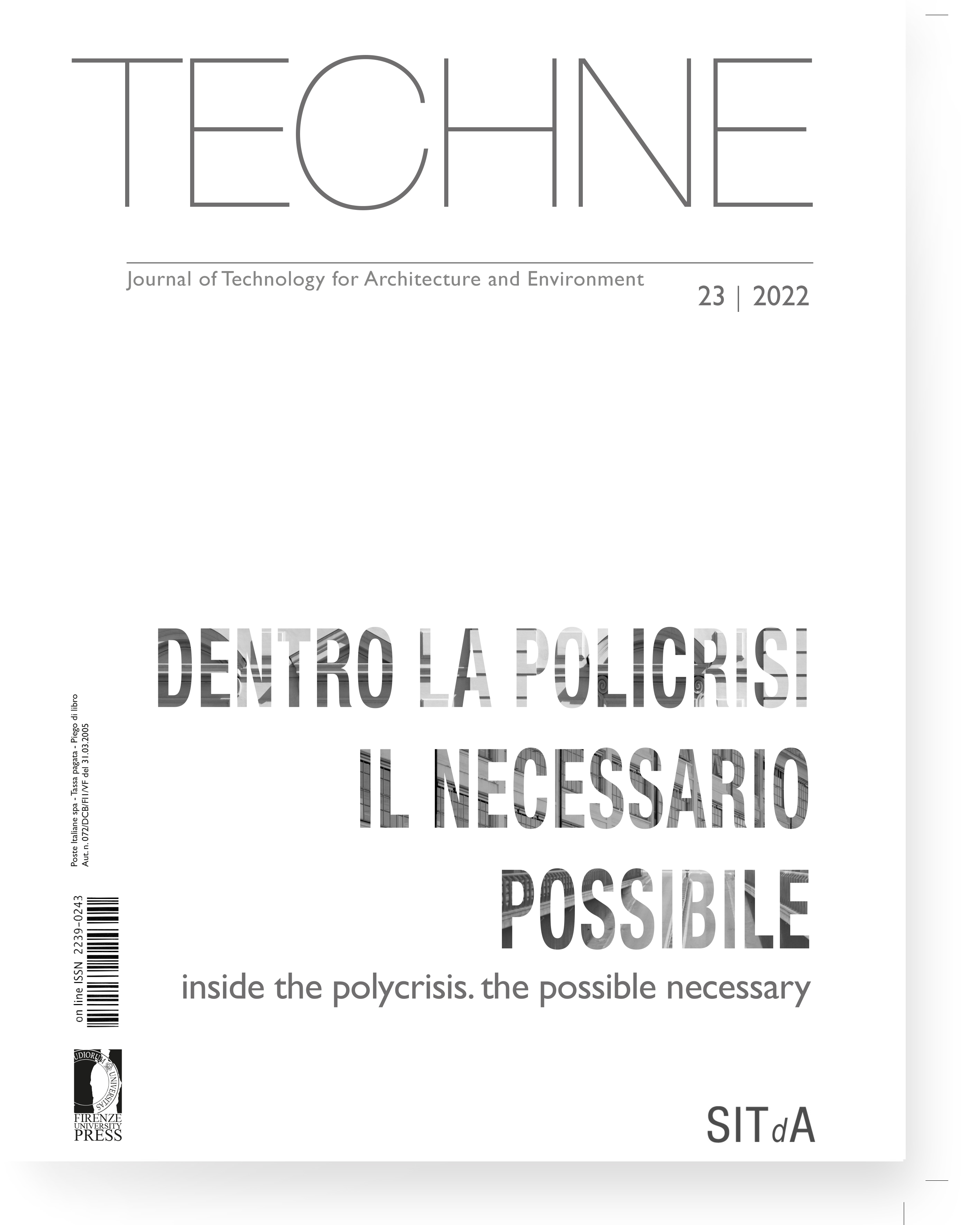TECHNE 23 (2022): Inside the Polycrisis. The Possible Necessary
Issue Description
Ten years after the first issue of the Journal TECHNE – “Beyond the crisis” – we are still deeply “inside the polycrisis" and many of the most recent reflections and planning processes for the postcovid city still do not seem capable of overcoming the emergency or conventional logic of a mainstream design culture aimed at formalistic or reductionist solutions.
Therefore, n. 23 of TECHNE has collected theoretical and applicative contributions aimed at representing updated and effective innovation scenarios, in processes, technical policies and design experimentation with reference to:
- the eco-social transition of cities and territories; thus illustrating methods and tools for the eco-sustainability of interventions, as well as planning, management and implementation processes based on decentralisation, participation and subsidiarity;
- the transformation, adaptation, reconversion and reactivation of the existing built heritage for the new social demand, in response to housing needs and an innovative conception of habitats (techno-typological innovation and self-sufficient approach);
- the eco-systemic conversion of the construction sector (processes and forms of building production, circular economy, carbon neutrality and building renovation), through new roles, organisational models and skills for the professions and public administrations.

